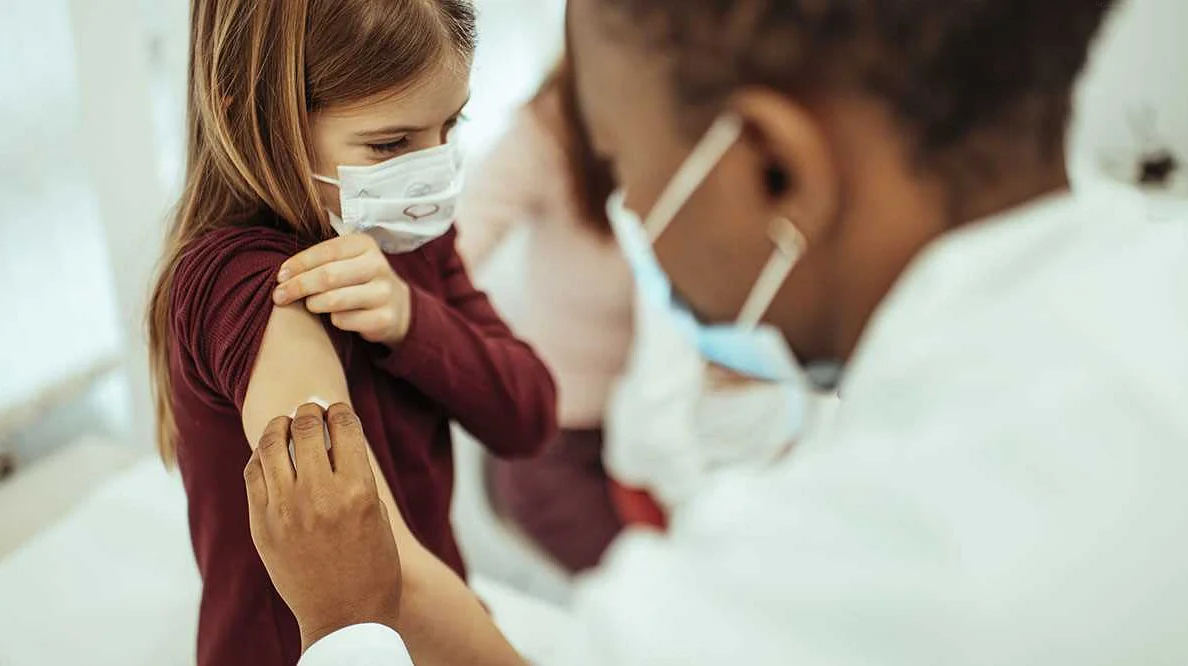According to a St. Petersburg academician, getting vaccinated against coronavirus while asymptomatic will not cause any harm. Vaccination is a crucial step in preventing the spread of the virus and protecting oneself and others from severe illness.
In the context of the ongoing Covid-19 pandemic, vaccination remains one of the most effective ways to prevent the spread of the virus and protect individuals from severe illness. However, questions and concerns regarding the safety and efficacy of vaccination in different groups of people continue to arise. In particular, there has been a debate about whether individuals who have already had asymptomatic Covid-19 should receive the vaccine.
Addressing this issue, an academician from St. Petersburg has emphasized that vaccination against coronavirus does not pose any harm to individuals who have previously been infected with asymptomatic Covid-19. According to the academician, while natural infection may provide some level of immunity, it is often insufficient and short-lived. Vaccination, on the other hand, stimulates a stronger and more durable immune response, thereby offering better protection against the virus.
The academician further explained that asymptomatic Covid-19 cases are often missed and therefore not properly documented. As a result, relying on previous infection as a basis for immune protection may be unreliable. In addition, the academician stressed that vaccination is a key tool in achieving herd immunity and controlling the spread of the virus on a broader scale.
In conclusion, the academician from St. Petersburg supports the vaccination of individuals who have had asymptomatic Covid-19. Vaccination provides a more robust and long-lasting immune response compared to natural infection alone. By getting vaccinated, individuals not only protect themselves but also contribute to the collective effort to overcome the global pandemic.
Scientific Expertise Supports Vaccination
Scientific experts and healthcare professionals around the world are in consensus that vaccination is a crucial tool in the fight against the coronavirus pandemic. Extensive research and clinical trials have shown the effectiveness of vaccines in preventing infection, reducing severe illness, hospitalization, and death.
Vaccines undergo rigorous testing and evaluation before they are approved for public use. This process ensures that vaccines are safe, effective, and meet the highest standards of quality. The COVID-19 vaccines approved by regulatory authorities have undergone extensive testing involving thousands of volunteers to ensure their safety and efficacy.
Scientific expertise supports vaccination as an essential measure to control the spread of the virus. Vaccination not only protects individuals from severe illness but also helps in achieving herd immunity, which is crucial in ending the pandemic. By vaccinating a significant portion of the population, we can limit the transmission of the virus and reduce the chances of new variants emerging.
Vaccines have a long history of success in eradicating diseases and improving public health. Smallpox, polio, and measles are some of the diseases that have been effectively controlled through vaccination. The scientific community has extensive experience and knowledge in vaccine development and distribution, which has proven to be invaluable in the fight against COVID-19.
It is important to rely on scientific expertise and evidence-based information regarding vaccination. Misinformation and vaccine hesitancy can hinder efforts to control the pandemic and save lives. By trusting in the scientific consensus and getting vaccinated, we can protect ourselves, our loved ones, and our communities from the devastating effects of COVID-19.
Benefits of Vaccination for Asymptomatic Covid-19 Cases
Vaccination against Covid-19 is crucial in preventing the spread of the virus, even among individuals who are asymptomatic. Although asymptomatic cases may not display any symptoms, they can still transmit the virus to others, including those who are more vulnerable to severe illness.
By getting vaccinated, individuals who are asymptomatic can contribute to the overall efforts in controlling the spread of Covid-19. Vaccines help to stimulate the immune system, creating a defense mechanism that can neutralize the virus and prevent its replication.
Moreover, vaccination provides a level of protection that can help reduce the risk of developing severe symptoms if a breakthrough infection were to occur. This is especially important for individuals who are asymptomatic, as they may not be aware of their infection status and could unknowingly expose others to the virus.
Vaccination also plays a vital role in achieving herd immunity, which occurs when a significant portion of the population is immune to the virus. This not only protects those who are vaccinated but also provides indirect protection to individuals who cannot be vaccinated due to medical reasons or age.
Furthermore, getting vaccinated can help to alleviate the burden on healthcare systems by reducing the number of Covid-19 cases, including those among asymptomatic individuals. This can help to prevent overwhelmed hospitals and ensure that resources are available for those in need of medical attention.
Overall, vaccination against Covid-19 is beneficial for asymptomatic cases, as it helps to prevent the spread of the virus, protects against severe symptoms, contributes to achieving herd immunity, and supports the overall healthcare system.
Safety Measures in Vaccine Development

In the development of vaccines, safety is of paramount importance. Extensive research and rigorous testing are conducted to ensure that vaccines are safe and effective before they are approved for public use.
Here are some of the safety measures that are followed during vaccine development:
| 1. Preclinical Testing | Before vaccines are tested on humans, they undergo extensive preclinical testing in the laboratory and on animals. This helps researchers understand how the vaccine works and identify any potential risks or side effects. |
| 2. Clinical Trials | Vaccines go through multiple phases of clinical trials involving thousands of volunteers. These trials are designed to assess the safety and efficacy of the vaccine. Participants are closely monitored and any adverse reactions or side effects are carefully documented. |
| 3. Ethical Guidelines | Vaccine development follows strict ethical guidelines to protect the rights and well-being of the participants. Informed consent is obtained from all volunteers, and the trials are conducted in accordance with international standards and regulations. |
| 4. Regulatory Oversight | Vaccine development is closely monitored by regulatory authorities such as the Food and Drug Administration (FDA) in the United States. These authorities review the data from clinical trials and determine whether the vaccine is safe and effective for public use. |
| 5. Post-Marketing Surveillance | Even after a vaccine is approved and released to the public, continuous monitoring is carried out to detect any rare or long-term side effects. This helps ensure the ongoing safety of vaccines. |
By following these safety measures, researchers and regulatory authorities strive to develop vaccines that are safe, effective, and trusted by the public.
Addressing Concerns and Misconceptions
As vaccination efforts against the coronavirus continue to ramp up, it is natural for people to have concerns and misconceptions about the process. However, it is important to address these concerns with accurate information to promote understanding and dispel any fears or doubts.
One common concern is whether getting vaccinated against the coronavirus while being asymptomatic will cause harm. According to the St. Petersburg Academician, there is no evidence to suggest that vaccination in asymptomatic cases poses any additional risks or harm. In fact, vaccination can help prevent the spread of the virus and protect individuals from developing severe symptoms or complications.
It is understandable that some individuals may worry about the potential side effects of the vaccine. However, it is crucial to note that the benefits of vaccination far outweigh the potential risks. The vaccines have undergone rigorous testing and have been found to be safe and effective in preventing the coronavirus.
Another common misconception is that getting vaccinated will give individuals the coronavirus. This is not true. The vaccines do not contain the live virus that causes COVID-19. Instead, they work by stimulating the immune system to recognize and fight against the virus. This helps individuals develop immunity to the virus without actually getting sick from it.
Moreover, it is important to emphasize that vaccination is a critical step in controlling the spread of the virus and ending the pandemic. By getting vaccinated, individuals not only protect themselves but also contribute to the larger goal of achieving herd immunity and reducing the overall transmission of the coronavirus.
In conclusion, it is essential to address concerns and misconceptions surrounding vaccination against the coronavirus with accurate information. Vaccination in asymptomatic cases does not cause harm, and the benefits of vaccination far outweigh any potential risks. The vaccines do not give individuals the coronavirus, but instead help them develop immunity to the virus. Vaccination is a crucial step in ending the pandemic and protecting both individuals and the wider community.
Government Initiatives for Vaccination Campaign

The government has taken several initiatives to ensure the success of the vaccination campaign against the coronavirus. One of the key steps taken is the establishment of vaccination centers across the country. These centers are equipped with the necessary infrastructure and trained staff to administer the vaccine safely and efficiently.
The government has also launched a public awareness campaign to educate the population about the importance of vaccination and dispel any misconceptions or fears surrounding the vaccine. This campaign includes the dissemination of accurate information through various media channels, such as television, radio, and social media.
Furthermore, the government has implemented a vaccination schedule, prioritizing high-risk groups, such as healthcare workers, the elderly, and individuals with underlying health conditions. This approach ensures that those who are most vulnerable to the virus receive the vaccine first.
Additionally, the government has put in place measures to ensure that the vaccine is accessible to all segments of the population, regardless of their socioeconomic status or geographical location. This includes the provision of free or subsidized vaccines, as well as mobile vaccination units to reach remote areas.
In order to monitor the progress of the vaccination campaign and address any challenges that may arise, the government has set up a dedicated task force. This task force consists of experts from various fields, including healthcare professionals, epidemiologists, and public health officials.
Overall, the government’s initiatives for the vaccination campaign demonstrate a commitment to protecting public health and controlling the spread of the coronavirus. By prioritizing accessibility, public awareness, and efficient administration, the government is working towards achieving widespread vaccination coverage and ultimately overcoming the pandemic.